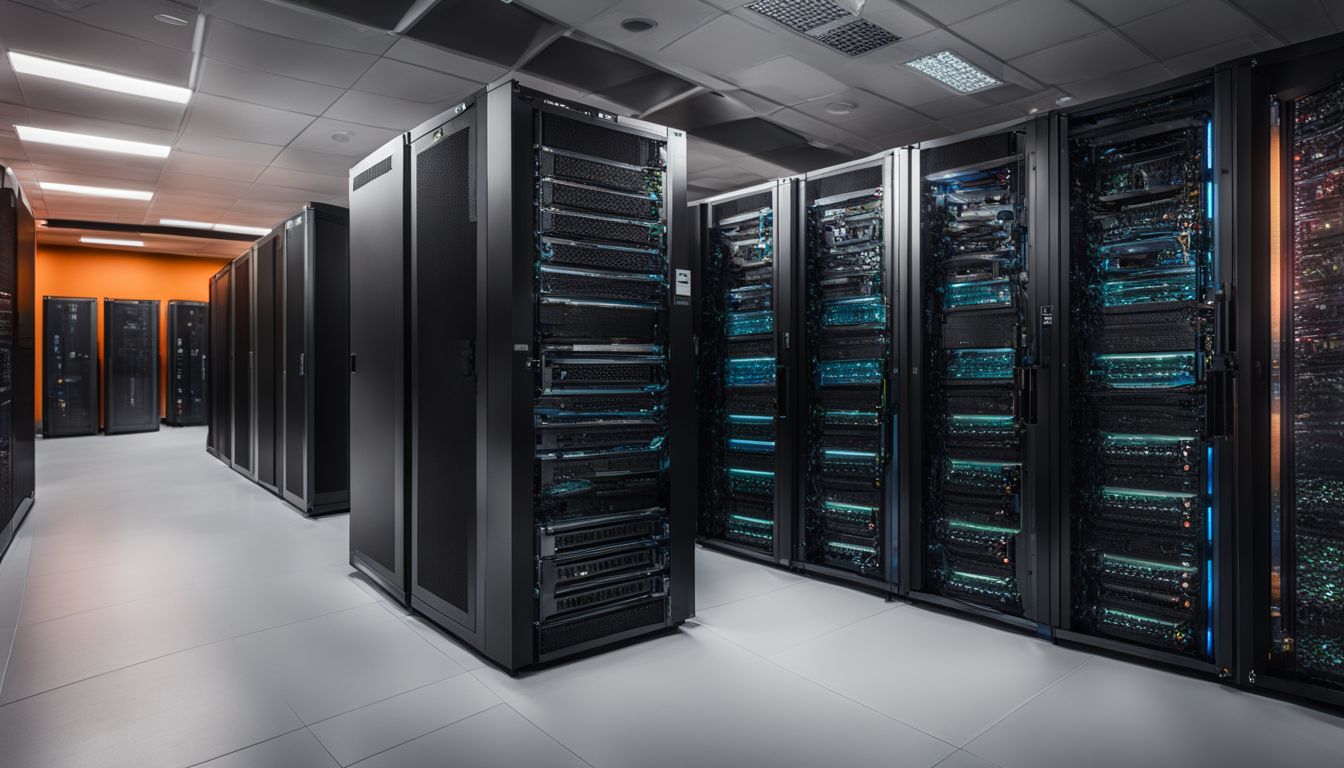In today’s digital world, keeping your website safe from cyber threats has never been more important. Firewalls act as a robust barrier against hackers trying to access your precious data.
This article will guide you through the essentials of firewalls, helping you understand why they’re the safeguard your business needs. Let’s dive in and fortify your defense!
Understanding the Role of a Firewall

A firewall works like a security guard for your computer network. It looks at the information coming in and out of your network. If it sees something bad, like a hacker or a virus, it stops it from getting through.
This keeps your network safe.
Think of your business as a castle. Your data is the treasure inside. A firewall is like the castle wall that stops thieves from getting in and out easily. It checks everyone coming to the gate and only lets in those you say are okay.
That way, you keep your treasure – your business data – protected all the time.
The Importance of a Firewall

A firewall serves as the first line of defense against cyber attacks, blocking inbound threats and providing defense in depth. It is crucial for businesses to have a strong firewall to protect their website and data from malicious activity.
First Line of Defense Against Cyber Attacks
Firewalls stand guard over your business’s digital doors. They check the data coming in and going out of your network, making sure no bad stuff like viruses or hackers slip through.
Think of them as bouncers at a club, only letting in the guests who are supposed to be there. This barrier is super important because it catches threats before they can cause harm.
Having this kind of security helps keep your computers safe from cyber attacks that try to sneak in through the internet. With a firewall up and running, you’re taking a big step towards protecting all those important things inside your network – like customer details, business secrets, and all the hard work you’ve put into building your company.
Blocking Inbound Threats
Keeping your website safe means stopping bad stuff before it gets in. Firewalls are like strong guards that check everything trying to come into your network. They look at the details – where it’s from and what it is – using rules you’ve set up.
If they spot something wrong, like a cyber threat, they don’t let it through.
This kind of protection is key because many attacks start from outside trying to get in. A firewall acts by guarding the door and letting only good traffic pass. It helps keep hackers out so they can’t steal data or mess with your site.
For a business owner, this means safer transactions and less worry about online dangers.
Providing Defense in Depth
A firewall is not just a single wall to stop cyber attacks. Think of it as part of a castle’s layers of protection. Just like how castles have moats, walls, and guards, defense in depth means your business has many security steps.
This way if one step fails, others are there to protect you.
This strategy makes sure that even if attackers get past the firewall, they can’t easily harm your network or data. To set up defense in depth, you put in more tools like intrusion detection and access control.
Your company stays safer because you’re ready for different types of threats at once. You also check the rules on your firewall often to make sure everything works right.
Two Types of Firewalls
Hardware firewalls are physical devices that are installed at the network perimeter, while software firewalls are applications or programs that run on individual computers or servers.
To learn more about the different types of firewalls and their roles in website security, keep reading!
Hardware Firewalls
Hardware firewalls are tough guards for your business’s online space. Think of them as doorkeepers that check every bit of data trying to enter your network. They live outside your computers, often in a little box that plugs into your network.
This gear is always on the lookout, making sure only safe data passes through.
They work great at stopping bad traffic before it can do harm. If you hear about routers, know they’re one kind of hardware firewall too. By setting up these physical devices, you make a strong wall against hackers and viruses wanting to sneak in and mess with your business’s precious information.
Your network stays safer because these machines watch over it all day and night.
Software Firewalls
While hardware firewalls protect the whole network, software firewalls focus on each computer. You install these programs to watch over incoming and outgoing network traffic for one device.
They are your personal guards that check who comes in and out of your digital door. Each computer gets its own firewall to block bad stuff like viruses or hackers.
Software firewalls work quietly on every machine in a business. They keep an eye on data coming through the network, stopping cyber threats before they can do harm. If you run a company, putting this kind of protection on all computers is smart.
It’s like giving each worker their own security guard who makes sure only safe information passes by.
Securing Transactions: Importance of Payment Gateway Security for Businesses
Payment gateways are like safe boxes for customer payment details. They keep credit card information locked away from thieves during online shopping. These systems use tough security rules to stop hackers from getting their hands on this data.
Businesses need these secure systems to make sure customers feel safe. When people buy things on a website, they trust the business with their card numbers. Payment gateways protect this trust by wrapping up each piece of data in layers of digital armor, making it unreadable to anyone trying to sneak a peek.
This keeps transactions smooth and worries low for both shoppers and sellers.
Conclusion
Understanding the fundamental role of firewalls is crucial for safeguarding websites and applications against cyber threats. Businesses can benefit from implementing both hardware and software firewalls to create a strong first line of defence.
By grasping firewall fundamentals, businesses can enhance their network security and protect valuable data from potential cyberattacks. It’s essential for all business owners to prioritise firewall implementation as part of their cybersecurity strategy to maintain a secure online environment.


